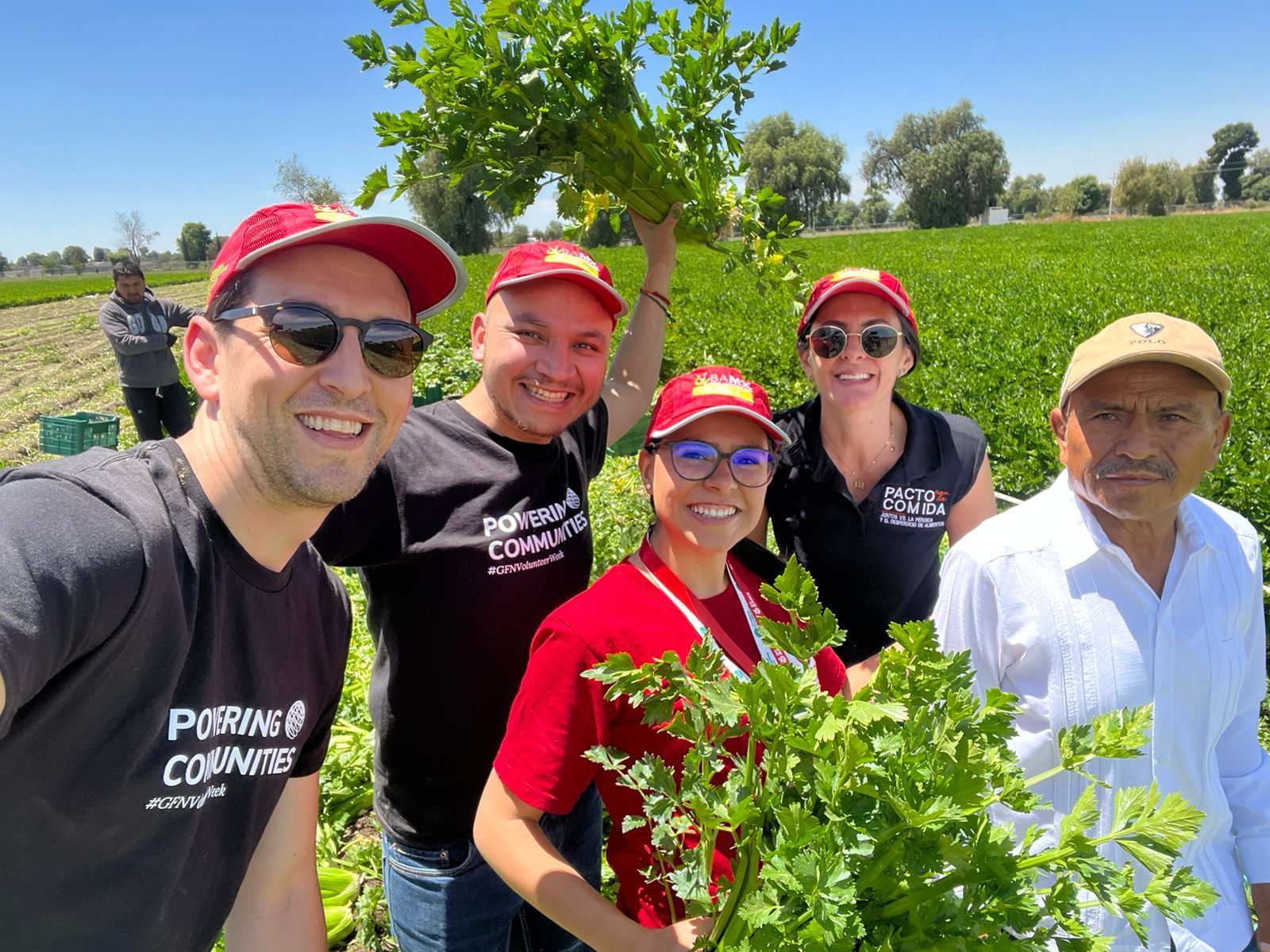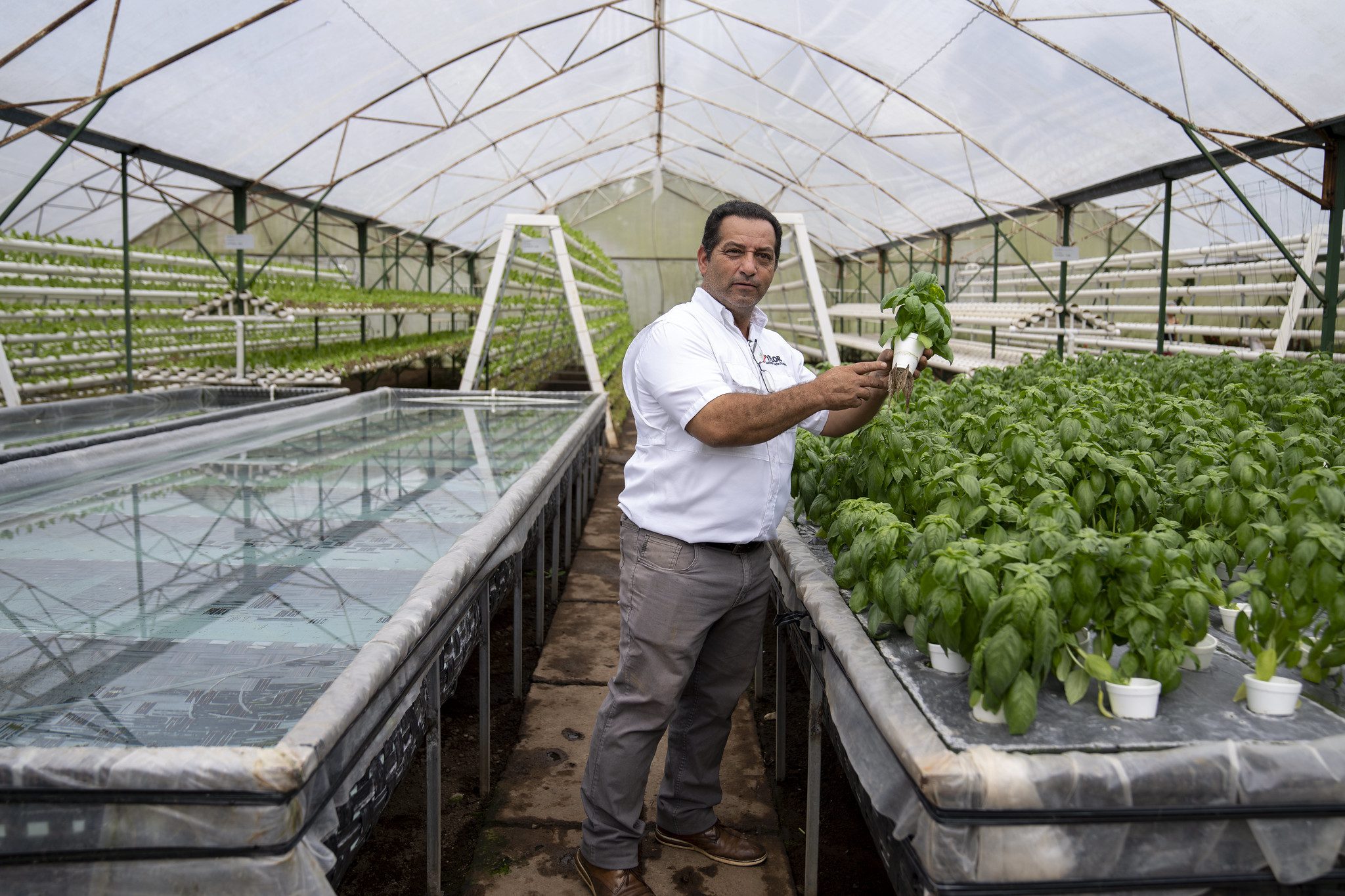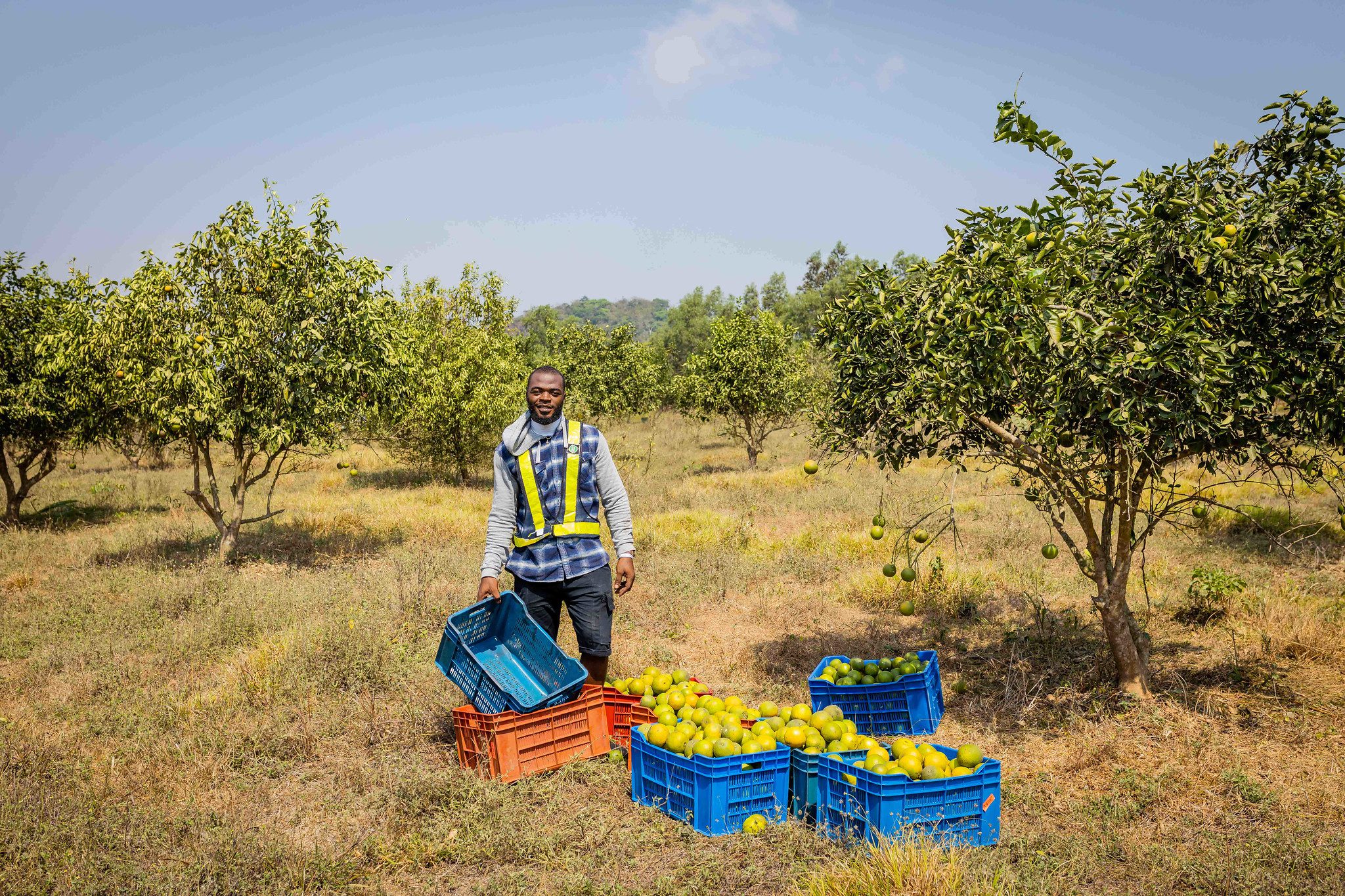The Global FoodBanking Network (GFN), together with the European Food Banks Federation (FEBA), hosted the 13th annual Food Bank Leadership Institute (FBLI) last week, March 25-27, 2019.
This year’s event, the largest in FBLI history, with more than 200 attendees from over 50 countries, attracted some of the brightest and most influential minds in food banking and the food industry, as well as policy and international aid. These parties came together to discuss the unique challenges and the solutions they are working on to meet the needs of food insecure populations, while simultaneously reducing food waste. Delegates participated in high-level discussions related to food banking, trends in the food industry, best practices, emerging challenges and opportunities in providing hunger relief. Watch FBLI sessions here.
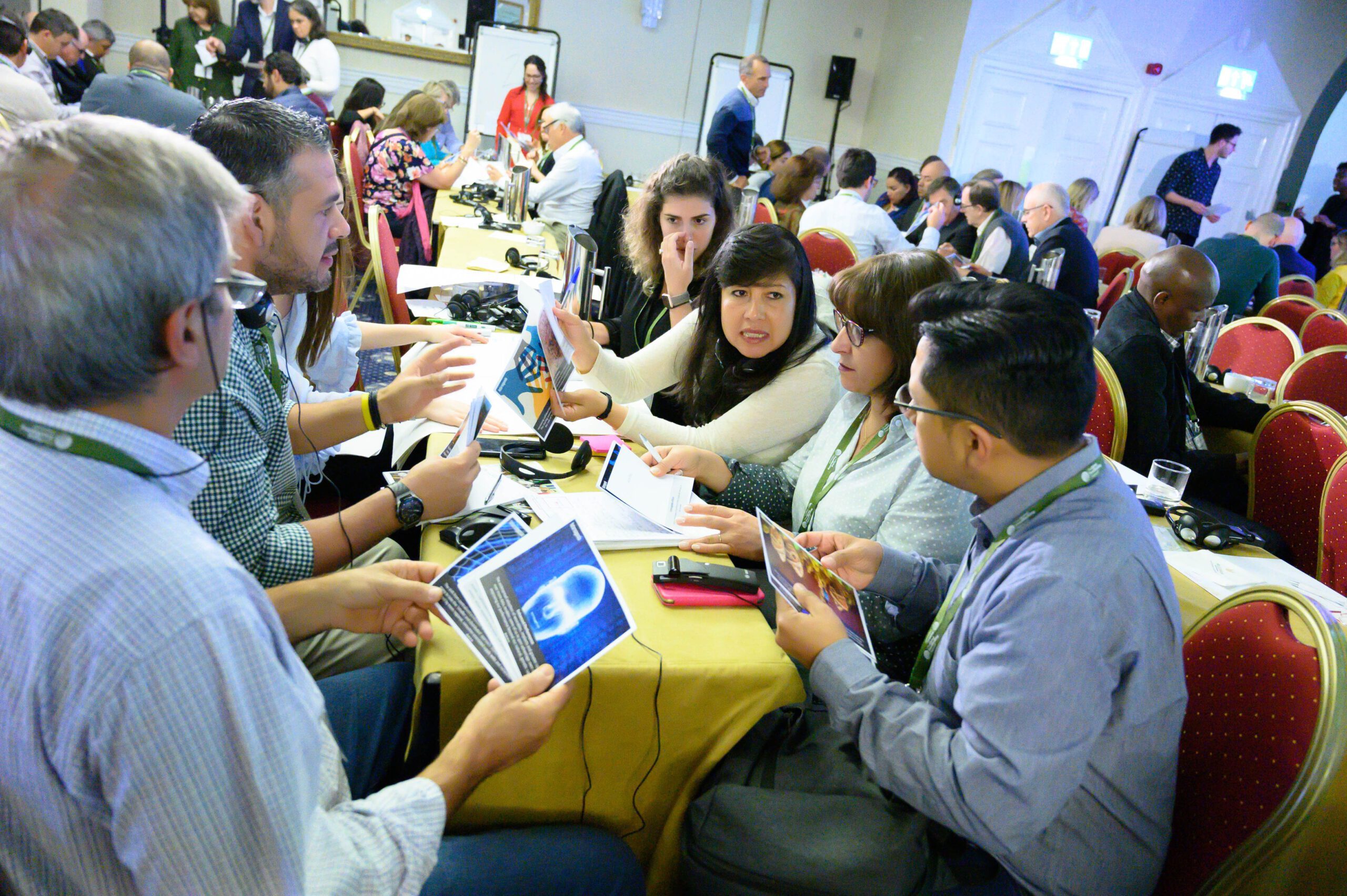
Working together to eliminate food waste and malnutrition
Attendees heard from two dynamic keynote addresses:
Dave Lewis, CEO of Tesco. In his remarks, Lewis discussed the global food waste challenge, progress made so far against Sustainable Development Goals 12.3 and his perspective on the important role of food surplus redistribution. Watch Lewis’ full keynote here.
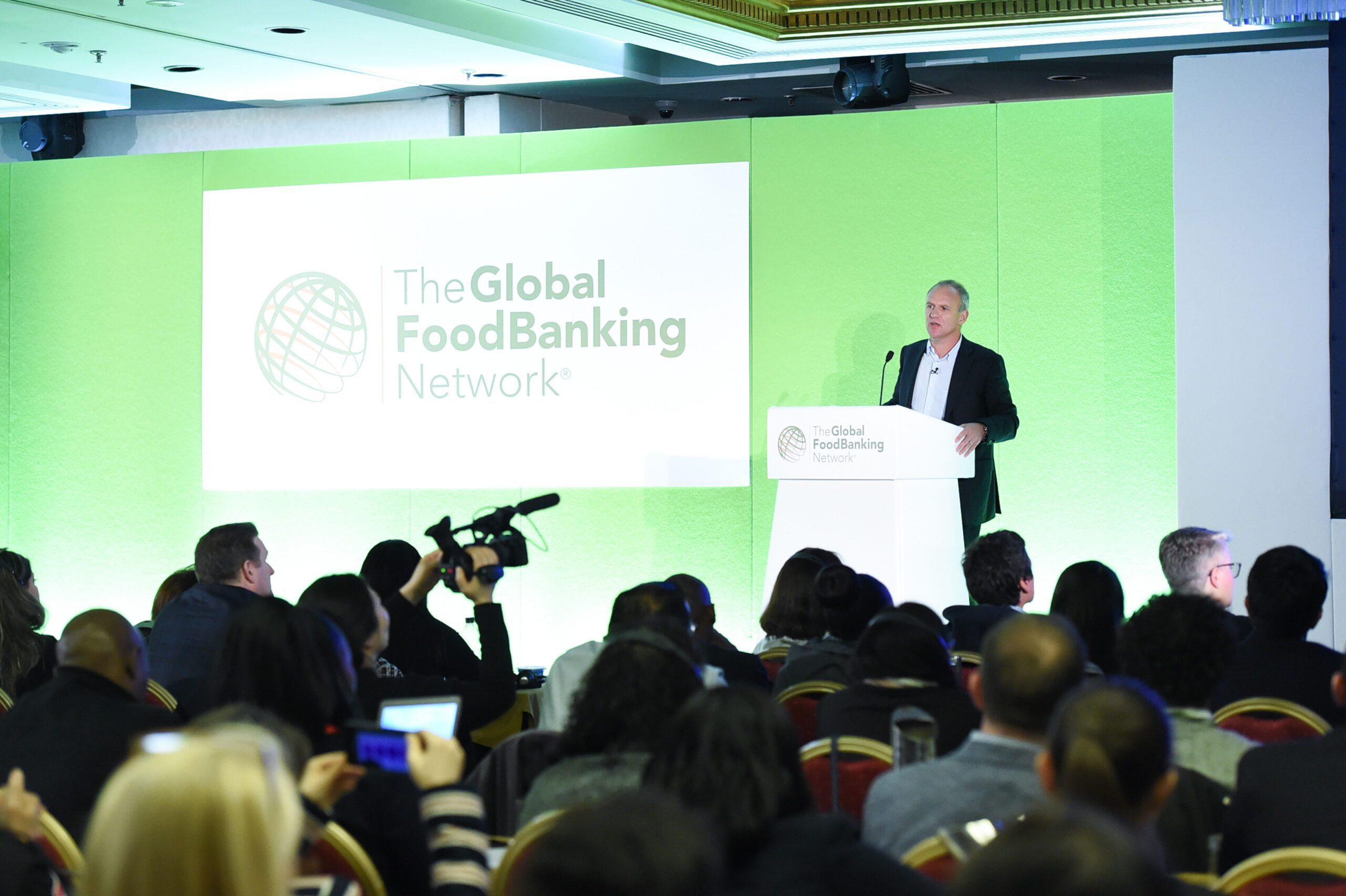
Lawrence Haddad, 2018 World Food Prize Laureate and executive director of the Global Alliance for Improved Nutrition. In his keynote address, Haddad discussed the international community’s commitment to achieving zero hunger by 2030 and reasons why the number of those facing chronic hunger and malnutrition is on the rise. Watch Haddad’s full keynote here.
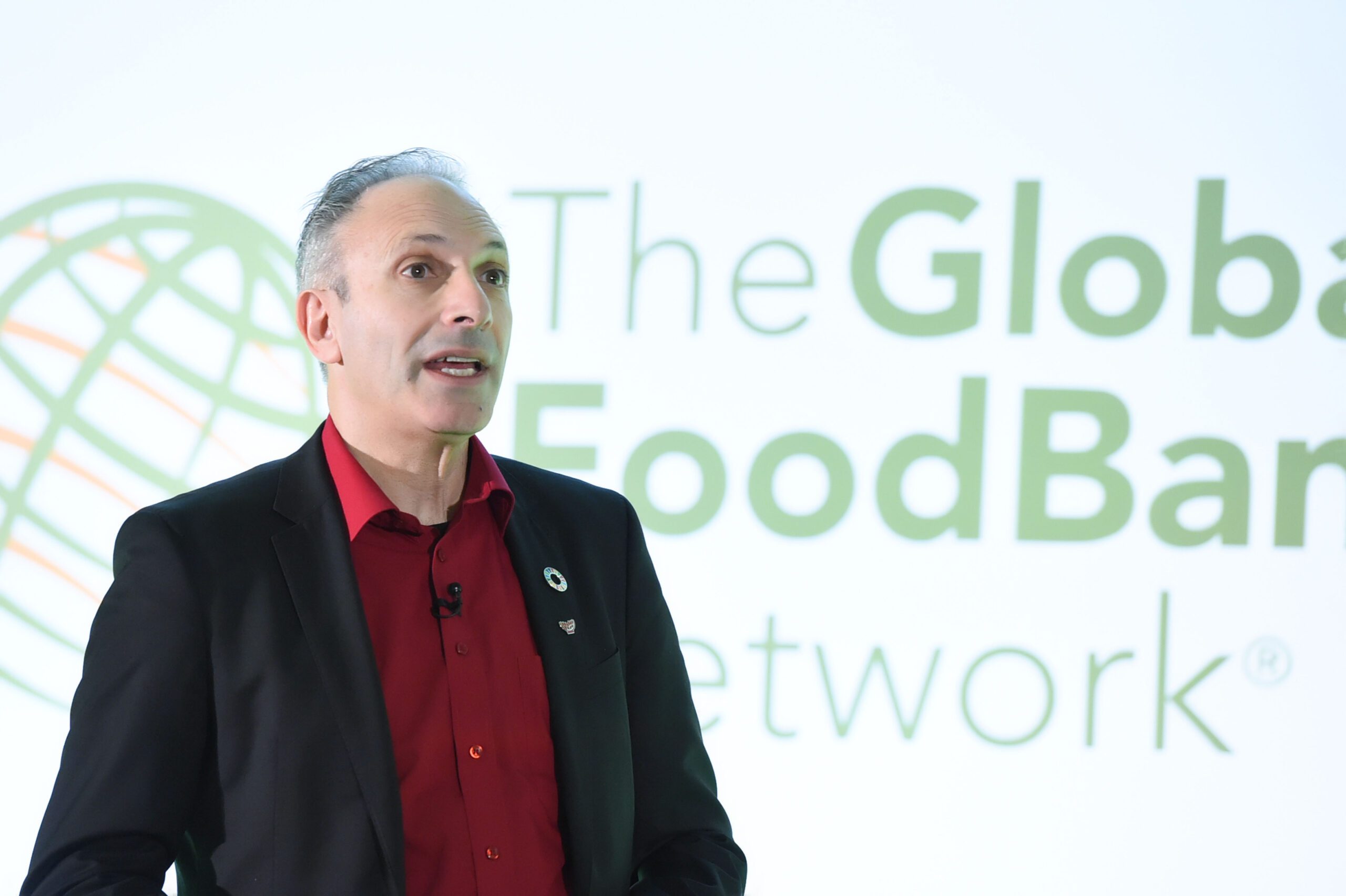
Discussions, breakouts and workshops to advance the food bank model
FBLI was comprised of three full days of panels, breakout discussions, presentations and announcements. In addition to hearing from senior officials at GFN and FEBA, delegates heard from a wide array of executives at global food banks, foundations, corporations and universities, including General Mills, Boston Consulting Group, Cargill, Harvard Law School, Massachusetts Institute of Technology, PepsiCo Foundation, World Resources Institute and World Food Programme.
Some of the most notable takeaways from FBLI’s panels included:
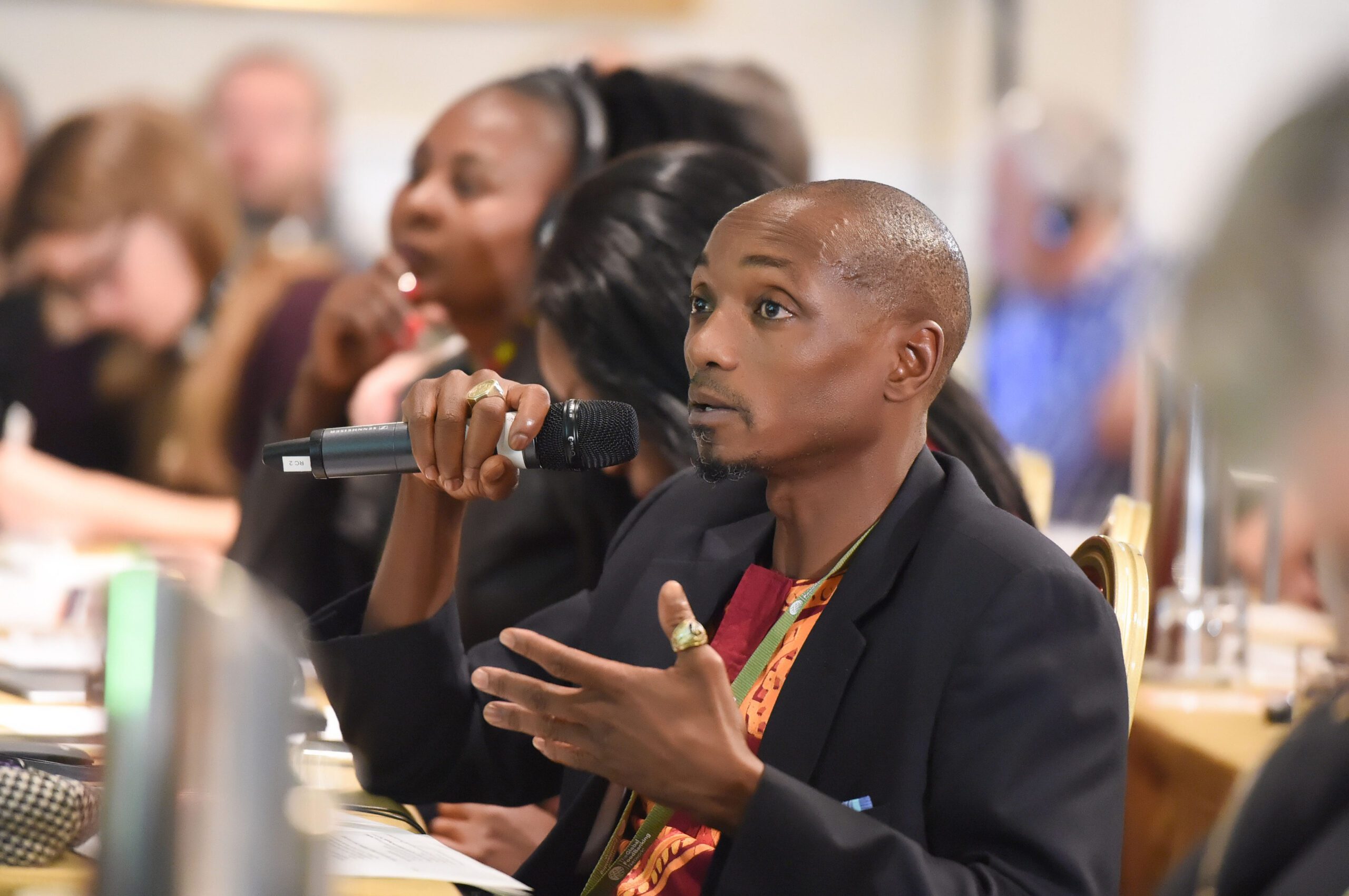
Download FBLI presentations here.
Honoring Advancement: GFN Innovation Award, made possible by H-E-B
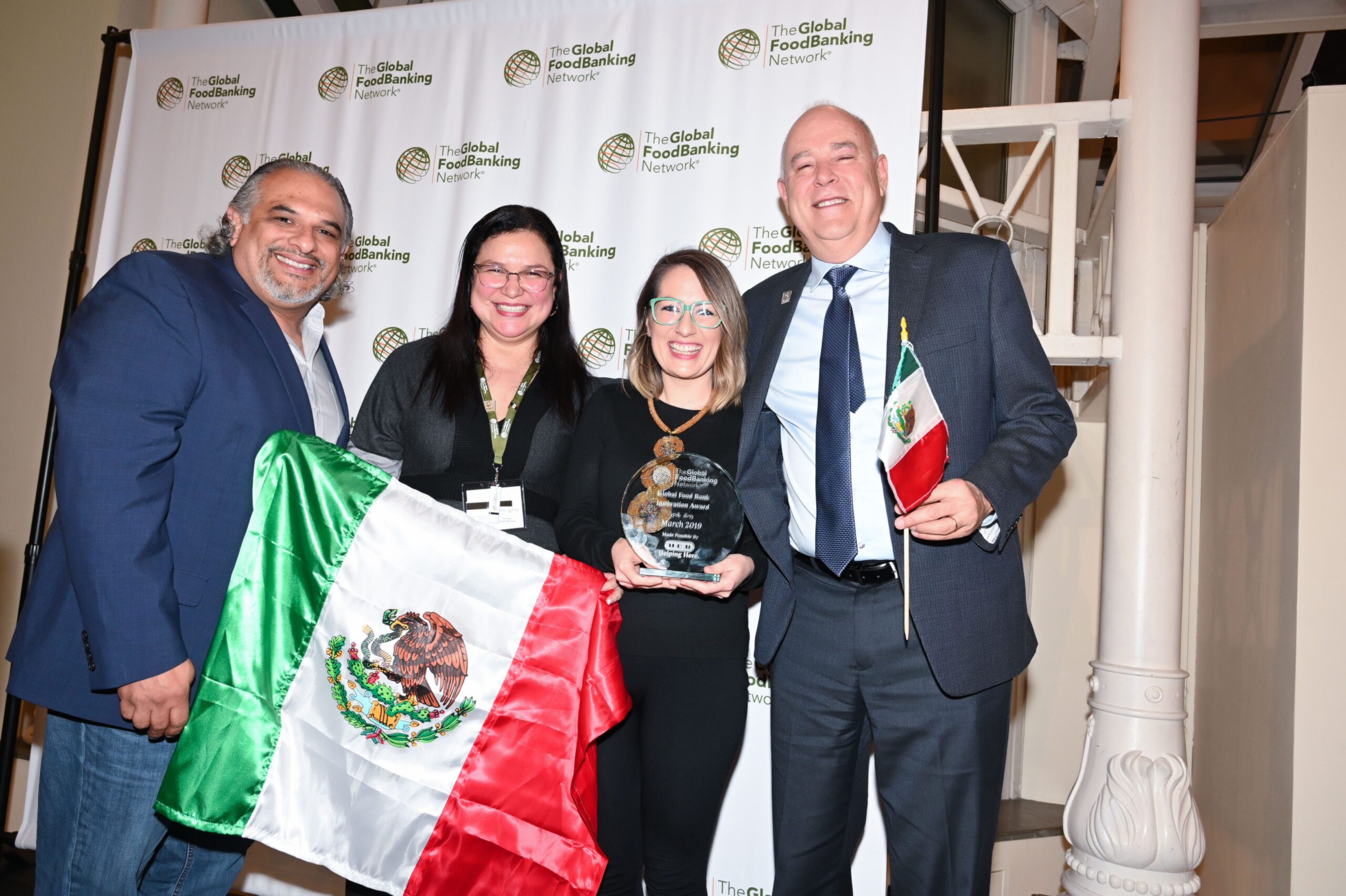
Each year, The GFN Global Food Bank Innovation Award, made possible by H-E-B recognizes promising and innovative approaches to tackling hunger relief and food waste reduction through food banking.
During the closing reception, Bancos de Alimentos de Mexico (BAMX) was announced the Global Food Bank Innovation Award Winner after being selected by their peers during the three-day conference. BAMX’s Rescate de Alimentos Preparado is a unique program committed to reducing food waste through the recovery of surplus food from the hospitality and gastronomy sector. Since Al Rescate began in 2014, BAMX has rescued more than 50,000 kilos of prepared food, through partnerships with nine hotels and 50 restaurants.
Starting this year, Al Rescate will transition services to an online platform and become the first food rescue app in Mexico, ultimately supporting more dynamic and innovative operations at BAMX.
“We are so happy to share Al Rescate with the network. Rescuing food in the hospitality sector has great potential and the food that our organizations receive is of the highest quality. Who wouldn’t want a fresh and delicious chicken soup?” said Almendra Ortiz Tirado Aguilar, Director of Strategic Alliances and Innovation at BAMX. “Thank you, H-E-B, for making the Innovation Award possible and always being an important part of food banking history!”
This year, eight finalists presented programs for the award. Finalists included:
Results Unveiled: Food banks serve 62.5 million people across the globe
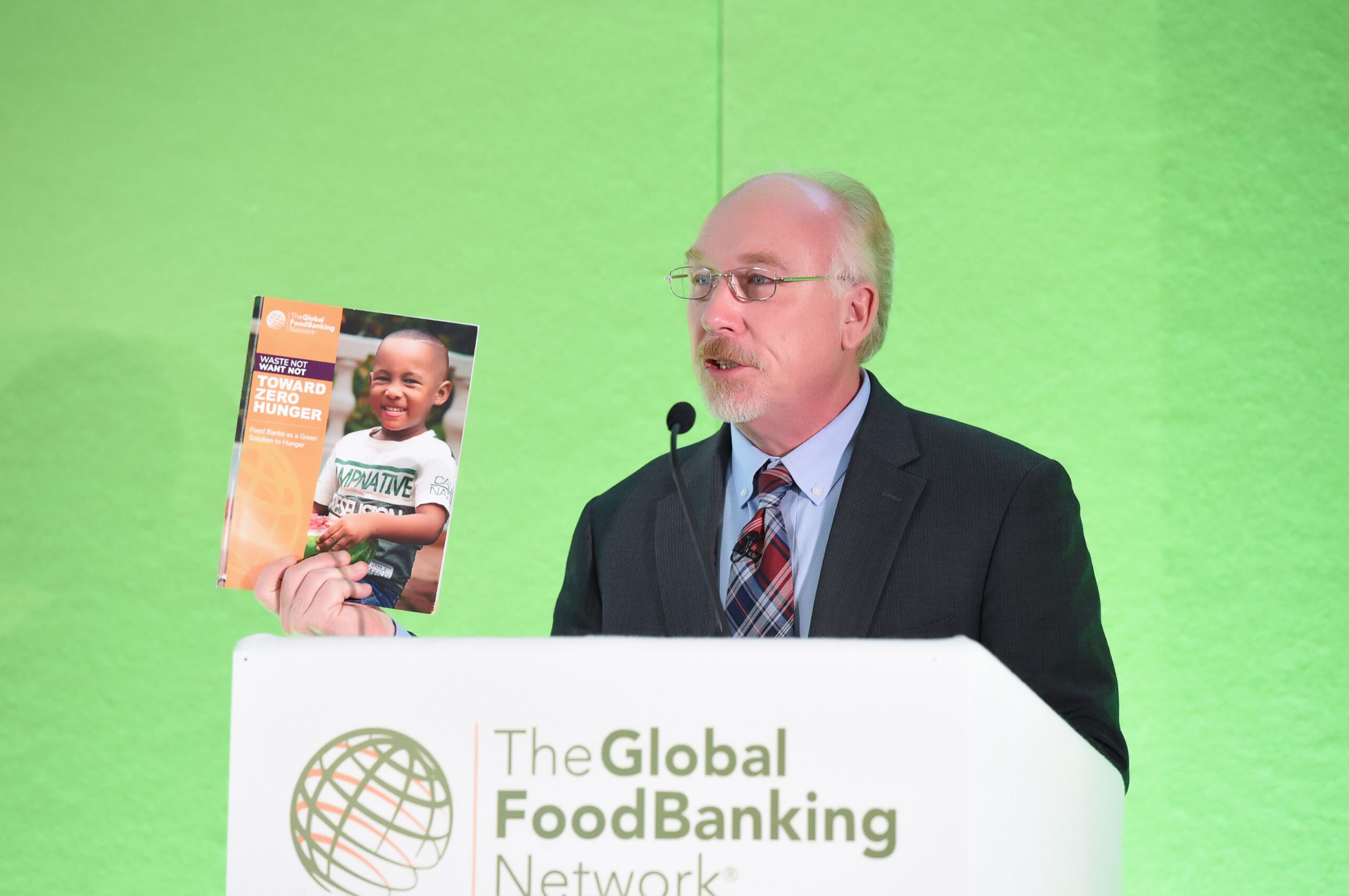
To kick off the start of FBLI, GFN released “Waste Not, Want Not”, a first-of-its-kind report that focuses on the contributions of local food bank organizations in achieving the United Nations’ Sustainable Development Goals.
On the final day of the conference, GFN moderated a panel to discuss key findings from the study. With speakers from Green Food Bank (China), Cargill, Bank of America and the General Mills Foundation, the panel discussed new information the study found on the global reach of food banking, its collective impact on feeding the hungry and the environment impact food banks can have across the globe.
Key takeaways from the study include:
Download Waste Not, Want Not and watch the panel discussion here.
Strengthening Global Food Policy with the Harvard Food Law and Policy Clinic
GFN and the Harvard Food Law and Policy Clinic, together with the support of the Walmart Foundation, announced an innovative partnership in order to create the Global Food Donation Policy Atlas.
The Atlas, a two-year project that will map the laws and policies affecting food donation in 15 countries, will help countries reexamine their existing food policies by providing research that will help them understand national laws relating to food, compare laws across countries and regions, analyze existing donation barriers and share best practices and recommendations toward more effective legal and policy framework.
Watch the full panel discussion and announcement here.
Award Announcement: Zero Hunger Food Bank Challenge
To close out the final day of the event, Alan Gilbertson, chair of GFN’s board of directors alongside Mary Jane Melendez of General Mills Foundation, announced the nine food bank organizations in Africa, South America, Central America and Australia that will receive grant money to tackle global hunger. The “Zero Hunger Food Bank Challenge” grants, which total $800,000, aim to strengthen food banks’ contribution to achieving the United Nations’ Sustainable Development Goal 2.
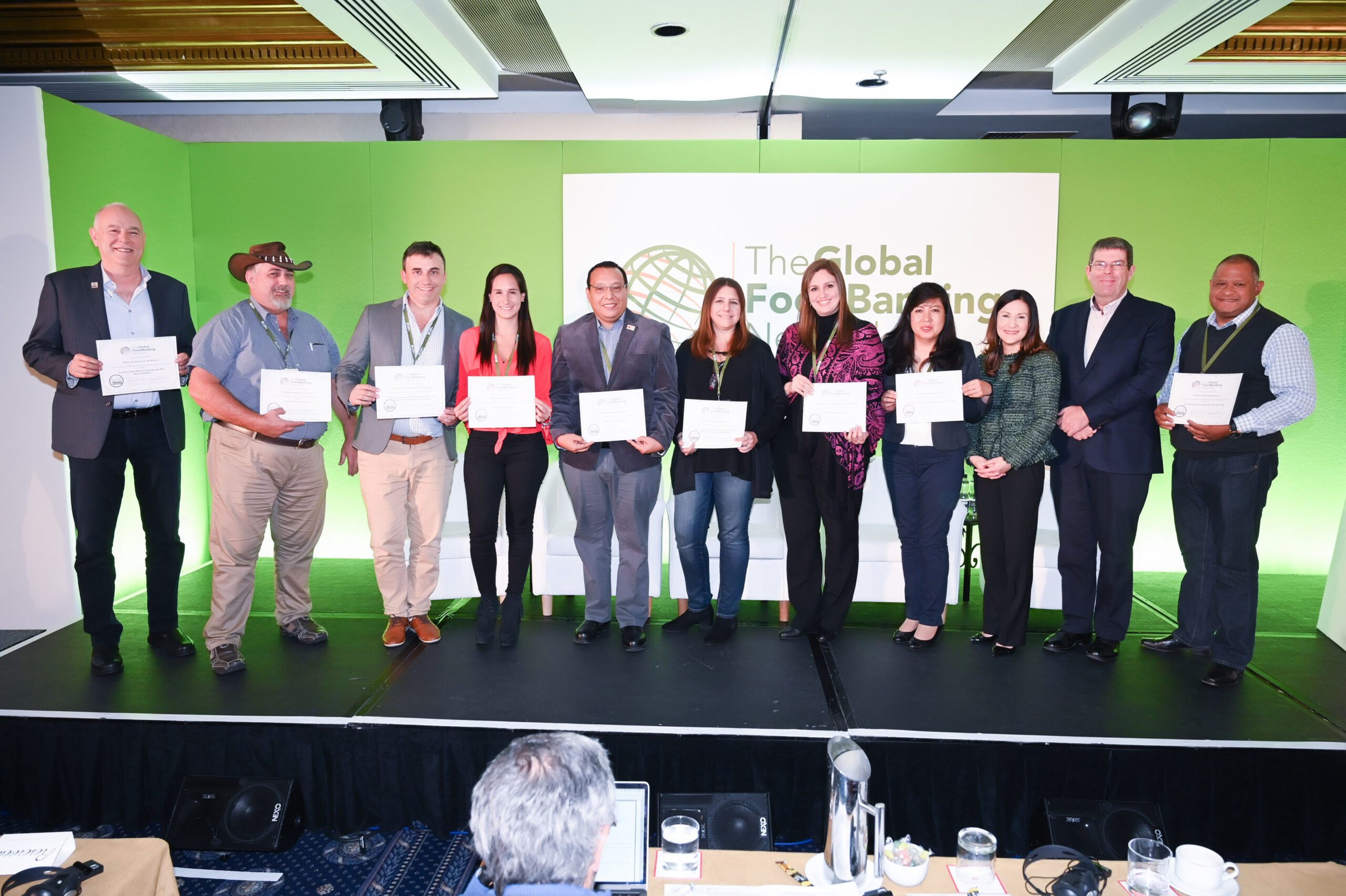
FBLI Sponsors
FBLI was made possible by the generous support of Mission Partner, General Mills; Sustaining Partners, Brambles and H-E-B; and Supporting Partners, Bank of America, Cargill, The DLA Piper Foundation, Ingredion and PIMCO.
Wrapping Up: Looking Ahead to 2020
GFN works with businesses, governments and NGOs to find socially responsible and economically effective ways to utilize resources – food, funds, technical expertise and volunteers – to advance food banks. Looking ahead, GFN will continue to play a leading role in bringing together key stakeholders – food bankers, corporations, foundations, universities – to discuss challenges, solutions and best practices in hunger relief.
We’re looking forward to an even more dynamic FBLI 2020 in Mexico City, where we hope to continue the dialogue on advancing the food banking model with more attendees from even more countries.
For more information about this year’s FBLI and to see images from the event, visit our webpage.
*All photos copyright Ken Jones Photography.
